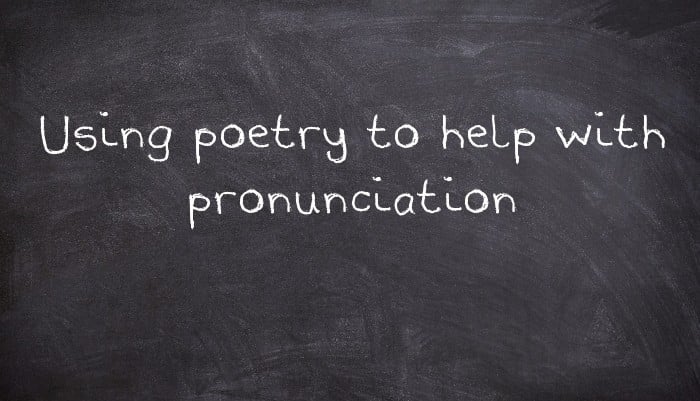Take for example the following words: "off" has the same pronunciation as "cough". This might be difficult to believe as the spelling is completely different. Look at the following words whose vowels are pronounced exactly the same although the spelling is completely different:
Too/blue/grew/flu/through/threw Does this prove the point?
English children love poetry, and they learn our language using rhyming words right from the beginning. It teaches them that words which rhyme are not necessarily spelt the same.
I have been a teacher of English all my working life, and for many years have helped overseas students with their English. Now, in my retirement, I have just written 230 new rhyming poems on every subject under the sun. Local children (6-year-olds) asked me to put the poems onto an website so that they could read them at home. Telling me that they had difficulty with reading words which sounded alike but were spelt differently from each other, they asked me to add my clear English voice recording to each poem. I have done this, and also added illustrations. I now find that I get lots of letters of thanks for doing this from students from other countries who are also learning to spell and pronounce our difficult English words. One said: "You have brought to life those lifeless words with your clear English voice."
It is possible for all students of English as a second language to freely access these poems and work on them, and this is what I recommend you do:
1 Read and listen to the poem.
2 Check with your dictionary any words that you do not know and learn.
3 Make a note of words which sound alike but are spelt differently.
4 Listen to the poem for the second time, but quietly say aloud the words yourself as y ou go through it. Practise any words which were difficult to say.
5 Listen for the third time the poem, reinforcing everything which you have learnt.
6 Listen to the poem without looking at the words this time.
7 Read the poem yourself without hearing the words.
8 You can download the poem and listen to it at other times and it is a good idea to learn the words and say them as you hear them, remembering the spellings of the words.
Practice Makes Perfect
They tell you that practice makes perfect. Practice will only make perfect if what you are practising is good correct English. Beware of writing words which are not correct English: "wanna" "cos" etc etc. You are only reinforcing bad habits. Remember always to read good English, correctly spelt, and always listen to correct English, correctly spoken. This way, you are building up good language habits which will last you a lifetime. Good luck with your English.
